Girlhood Through Vada's Eyes in My Girl
you think death as you do forever part, i know he will always be in your heart
I watched My Girl for the first time when I was around 11 or 12, decades after it came out. I vaguely heard that some consider it a classic and I was intrigued about a story that might portray someone at my pre-teen awkward age. At the time, there seemed to be a lack of balance between the complete infantilisation of pre-teens and the villanisation of them heading towards teenage recklessness. Yet all I inferred from a quick Google search was hopefully a wholesome first-love story and reckoning with independence, even if it was set in a time and place I could never relate to.
If you’re interested, here’s the trailer.
My goodness, this film surprised me—the emotions, the metaphors, the storyline. It felt refreshing to watch something as the writers thought out every line and direction in a deeply meaningful way. Ultimately, this is a story about a girl growing up, and it was created with so much love and care that it stood the test of time and reached me. FYI, there will be spoilers.
To summarise the premise, Vada is an 11-year-old girl who lives with her undertaker father, Harry Sultenfuss. As a result of growing up in a funeral home and harbouring a fear that she was responsible for her mother’s death during childbirth, Vada has a peculiar relationship with death. She frequently visits the doctor, convinced that her new symptoms indicate she will die. Her best friend, a boy her age, Thomas J often accompanies her. Meanwhile, Harry is seeing a new woman and Vada’s notions about romance are challenged. She ultimately must spend summer reckoning with her inevitable growth and distance from the idyllic past.
Mortal Reckoning
VADA
Daddy, how come that coffin's so small?
HARRY
They come in all sizes honey, just like shoes.
VADA
Is it for a child?
Harry hesitates
HARRY
Of course not.
VADA
Then who's it for?
Small pause while Harry thinks of a reply
HARRY
Short people, very short people.Sometimes Harry is still keen to protect Vada’s innocence. She’s getting to an age where she is beginning to see through the cracks. Life and death have always been and always will be unfair because precautions and the number of loved ones someone has won’t protect them.
I don’t know about most people but I began to feel seriously troubled by my mortality around this age. In hindsight, it probably mirrored my overall sense of helplessness in life. My first night-time panic attack dwelling on it is something unforgettable. Vada’s experience in this storyline encapsulates coming to terms with that anxiety. If anything, the entire film is an extended snapshot of that potential horror.
The film validates it, but there is a gentleness separate from how media typically sugarcoat it. Vada is abruptly forced to grieve but by the end, it allows her to feel calmer about life. At some point, she learns that living doesn’t have to be full of grand gestures or adventures so long as the individual values the moments. And I think that’s a beautiful angle to emphasise.
Misguided Bids For Attention
VADA
Dad, I don't wanna upset you, but my left breast is developing at a significantly faster rate than my right. It can only mean one thing. Cancer. I'm dying.
HARRY
(ignoring Vada)
O.K. Sweetie, hand me the mayonnaise out of the fridge.The opening scene begins with a monologue cutting to Vada addressing her father. She doesn’t know how to connect with him about her anxiety over mortality. He doesn’t know what to do with her growing up. It’s humorous and typical. Sure, it allows Vada’s dramaticism and imagination to shine but it does illustrate the occasional inevitability of children drifting from their parents. Harry struggles to understand that there’s something much deeper in Vada’s bid for attention however Vada has gotten to the point of doing it partly for amusement because she has become so used to his responses.
Enter the Stepmother
HARRY
She was raised in a funeral home, she knows a thing or two about it.
SHELLY
Harry, I really think she.....
HARRY
(annoyed)
She's a perfectly happy eleven year old girl, look, don't give me any advice about my daughter, okay?Until Shelly, Vada isn’t shown to have a reliable older female figure in her life. Her grandmother is fading due to dementia, perhaps illustrating Vada’s struggle to be seen in that familiar way by another woman.
Blended family politics can be confusing, but Shelly quickly sees things that Harry misses. This isn’t necessarily an attack on his care. It is simply another perspective that can reach Vada. One closing scene of the movie features Shelly brushing Vada’s hair as she gets ready for bed. One of the few times when Vada calmly and honestly reflects on Thomas J’s death.
Canonically, Harry and Shelly get married. Vada’s curiosity about her mother doesn’t go away. It’s the premise of the sequel. However, the introduction of Shelly, especially at Vada’s crucial age suggests that Vada needed this figure to be seen and helped as a girl.
Self Confidence
VADA
Shelly, do you think I'm pretty?
SHELLY
Yes, Vada I think you're very pretty. You've got these great big sparkling eyes, the cutest little nose, an amazing mouth.
VADA
The boys at school don't think I am.A very cute example of Shelly’s beneficial presence is the makeup scene. It’s a dialogue so touching and real but perhaps unimaginable in the context of Vada’s and Harry’s relationship. There will be many girls out there who have experienced the sensitive and personal touch of another, likely older girl, whether it’s a mother, sister, friend or stranger. This instance is groundbreaking in its subtlety and humanity. The community of girls is something that I feel most proud of, growing up as one.
This scene can even allow some imagination into how Shelly might impact Vada’s growth in the long run. She now has someone that resembles a mother. Someone who can support Vada’s self-confidence in the sensitive realm that her father simply may never be able to relate to based on gendered experiences.
That’s not to say that women who have grown up without a maternal figure are at a detriment. It could be argued that in some ways, Vada is missing a father figure too due to his grief as a widow. However, regardless of how a family is built, the film presents familial and maternal support as something that can be found in unexpected places. It highlights how life can be enhanced by such a figure.
Not to mention, this is so much more refreshing after the onslaught of the evil stepmother trope in the media!
The Puberty and Sex Bit
VADA
My Mommy and Daddy did THAT?
SHELLY
It's actually a very beautiful thing, and look there wouldn't have been a Vada.
VADA
I think it should be outlawed.
SHELLY
Believe me, some day, you'll feel differently.This aspect is often the most entertaining in a pre-teen coming-of-age narrative as most people have their own personal and memorable introduction to the… biological reality of reproduction.
Shelly is the one who breaks the news to Vada, and this happens only after Vada experiences her first period. Instinctively, Vada brushes past Shelly and demands to see her father, believing that this is undeniable proof that she is *really* dying this time. Yet Shelly swoops in gracefully, and the scene cuts to a quiet conversation in the comforts of Vada’s bedroom.
Of course, Vada’s reaction is still somewhat childlike, with repulsion of such an act, but the scene ends in a wholesome way. Shelly continues to lead with a positive mindset, with a gentle emphasis on the connections and relationships in such intimate contexts. There isn’t a semblance of shame or disgust on Shelly’s part, effectively modelling to Vada that sex can be approached in such a way as not to compromise dignity and self-esteem.
I’m Not Like Other Girls
SHELLY
You know Vada, you shouldn't let those girls upset you.
VADA
I'm not upset. I will never play with those girls. I only surround myself with people who I find intellectually stimulating.
Naturally, taking aside gendered identity, Vada is a young girl who, through subliminal messaging seeks to distance herself from other girls. Of course, she doesn’t want to be “like the other girls” because she still has yet to discover where she stands amongst them. They’ve teased her about her friendship with Thomas J and it could be argued that her attempt at distancing is an attempt to deter their teasing. Vada dismisses other girls, believing they aren’t “intellectually stimulating” yet really, she isn’t shown to interact with them in a meaningful way at all. There might be a more concrete off-screen backstory but by the end of the film, Vada does find her crowd of girls.
This can be taken negatively in the sense that Vada no longer has a friend like Thomas J and must come to terms with their treatment. Or it could be a sign of Vada’s growth in setting boundaries and seeing others beyond their stereotypical acts. Their previous teasing may have been a symbolic invitation to grow up and get in the crowd with the other girls yet Vada simply wasn’t ready.
I think it’s the latter because, throughout the film, Thomas J tends to be the one who invites her to do things more often than Vada. She turns him down when we might expect otherwise, indicating that perhaps subconsciously, she might be outgrowing that kind of genderless company too.
Questionable Crushes
VADA
It's not a real school, it's a writing class, I wanna be a writer.
THOMAS J
She only wants to do it because her sweetie pie's the teacher.
Vada is annoyed that Shelly now knows her little secret and
pushes Thomas J
VADA
Shut your big fat mouth!Yeah. A fun quirky side of girlhood is the very questionable and borderline problematic crushes.
This gets cruelly destroyed in the story too, when she confesses to Mr Bixler during her panic attack over Thomas J’s death. It’s an abstract representation of the occasional times girls will have to reckon with the absurdity of how their infatuation develops. Sometimes, having to realise many darker things behind those feelings such as enjoying the comforts of someone predictable or unobtainable. In hindsight, I am thankful that Mr Bixler handled this perfectly and kindly.
They’ll Come Around
This scene comes right after their experimental kiss. It’s a juvenile and sweet introduction to the potential of friendships and deep connections. Sadly, we would never know or get to see this dynamic play out.
Perhaps it’s depressing, but this scene personally touched me at that age. Shelly’s reassurance that “they’ll come around” isn’t empty or exaggerated. More importantly, the slightest hint of romantic interest comes from her best friend, the boy who spends the most time with her and knows her better than anyone her age. Thomas J understands Vada’s darkest side, surrounding her pain with the death of her mother. With all of that, he still likes her. He even likes her more than just a friend! And it comes respectfully based on simply enjoying time with her.
When Vada expresses her insecurity to Shelly and later in the story, Thomas J expresses this, there’s a wholesome message to the girls out there who may be in a similar mindset as Vada. The ones who are beginning to fret about male validation or how to measure up to other girls. The message is to continue staying true to who you are, the good and bad sides. At some point, someone will see the beauty in you as a roughened individual.
Nuanced Relationships
VADA
Are you married?
SHELLY
No, I'm divorced.
VADA
Daddy said it's bad when people get divorced.
SHELLY
Well, sometimes married people just find out they can't live with each other.Thomas J voices that people get married because it’s simply something that must be done when someone grows up. Likewise, Vada’s perspective on romance remains fantastical and innocent.
Vada and Thomas J have their brief moment and it’s a wonderful instance emphasising the sturdiness of their friendship. In many coming-of-age realities, some people experiment with the boundaries of the friendships around them. It can have devastating consequences but with this pair, it works because there is mutual trust and understanding in a way that children find sacred.
HARRY
The last date I had was twenty years ago.
PHIL
That's true. Harry Harry sit down, let me fill you in on today's women, since the last time you dated, something happened, "The Sexual Revolution", now before that, you used to have to hold a door open for a woman, pull her chair out, pick up the check, no more no more, you wanna know what else is missing? BRAS!Refreshingly, the grown-ups of the story are shown to struggle romantically too. Harry unintentionally gives Shelly the cold shoulder due to his reserved nature and Phil’s bad advice, However, the mishaps are reminiscent of any beginnings of a relationship and even applicable to teenagers just starting. This brings a hopeful reassurance that adults too, don’t know how to navigate the world.
Attachment
HARRY
Vada we have some good news, Shelly and I are getting married.
Vada's expression begins to change from hopeful, to horror, but then she drops her fish
VADA
Oh my fish!!!
Vada quickly bends over to pick up the fish
HARRY
We're having the wedding sometime near the end of the summer.
VADA
Not acknowledging Harry's comment You'll be okay little fish.
SHELLY
Vada? Would you like us to get you another goldfish?
VADA
(angry)
NO!, He's fine.
(less angry, talking to fish)
Fish are very resilient animals you know. Don't worry, I won't get another fish.Vada reacts interestingly to Shelly and Harry’s engagement.
I once read that the fish is a metaphor for Shelly’s attachment to her mother. The shock of the news leads Vada to drop him for a moment yet she still feels strongly that the fish shouldn’t be replaced.
She spends time at the willow tree with Thomas J reflecting on this, much like how the tree will come as a pivotal place to grieve her best friend. Eventually, Vada comes to accept it but this is done organically and at her own pace.
It’s not too outspoken. Vada doesn’t outwardly protest or attack Harry as we might expect. She simply needs a moment to come to terms with the change. It’s a little sad that Harry doesn’t fully consult Vada but it highlights her maturity. She understands that sometimes, change is truly needed for her loved ones too.
The Death of a Friend, Childhood and Androgyny
VADA
His face hurts, and where is his glasses? He can't see without his glasses! Put his glasses on!
Harry and Shelly are rapidly approaching Vada, Shelly takes hold of her and tries to pull her away
Put on his glasses! He was gonna be an acrobat.Vada’s insistence on Thomas J’s glasses can illustrate her fears of not being able to see beyond death. She can not see the future nor feel secure in anything she has left. His death could simply be the harsh finality of Vada’s discomfort around death being unfair. Certainly, no child kind and sweet enough to risk going near a bee hive to get his best friend’s ring deserves it.
After his death, her mood ring changes colours for the first time from black to blue. The connotations are straightforward enough. Beforehand, Vada was silently obsessed with death and harbouring guilt for her mother but when Thomas J passes, she has grown to be able to find some peace in the grieving process. It’s his death that finally gets her to ask her father for closure around her mother’s death and her part in it. Vada could’ve easily blamed herself for Thomas J’s death but she finally fully grasps the volatility and futility of such a mindset.
If we think of Thomas J as an embodiment or personification of Vada’s childhood innocence, his death reflects a cornerstone in her development. In her poem, she promises that he will “always be in her heart”. It’s the kind of thing that can’t be forgotten. In the sequel, Vada continues to wear the mood ring that Thomas J went to rescue. It’s not something she speaks about or continues to express grief over, but it certainly is something privately integral to her. To her, he will always represent the good of her childhood and perhaps who she once was.
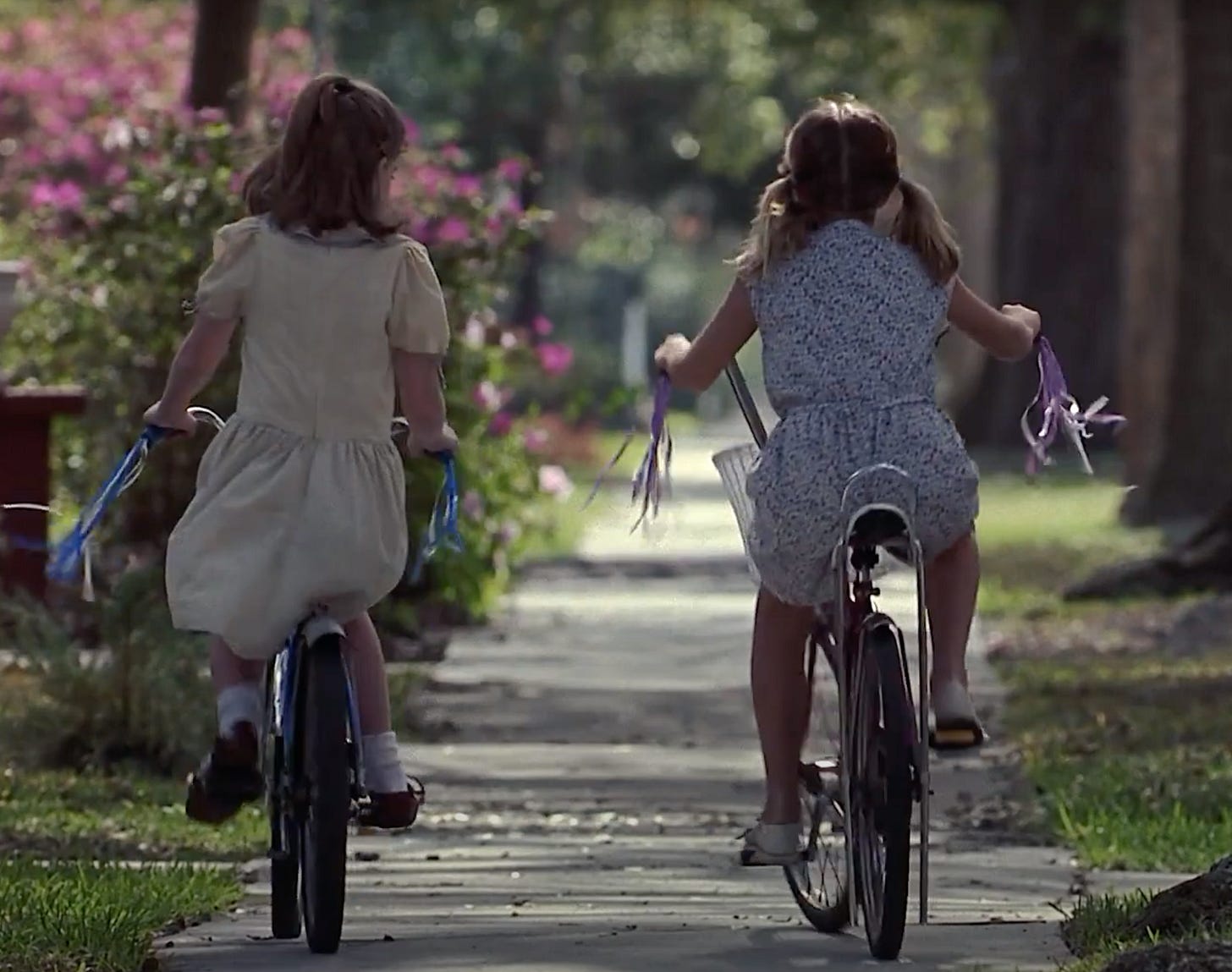
After his death, Vada’s self-expression turns a little more feminine. She wears dresses for the first time and accepts an invitation from a female classmate to hang out. She comes to this peacefully, and notably, it’s not an entirely stark difference. They go off riding bikes together, indicating that something integral to Vada’s character remains as she is predominantly seen riding bikes before, even if now, there’s a melancholic echo of loss.
Damn. I’m feeling emotional. It hurts that Thomas J had to die. And how Vada inevitably changes. If you haven’t seen it yet, I highly recommend it. The timelessness in the themes and emotions that the film explores is unbearably real and haunting. But that’s girlhood. It hurts, but it’s also beautiful.
.




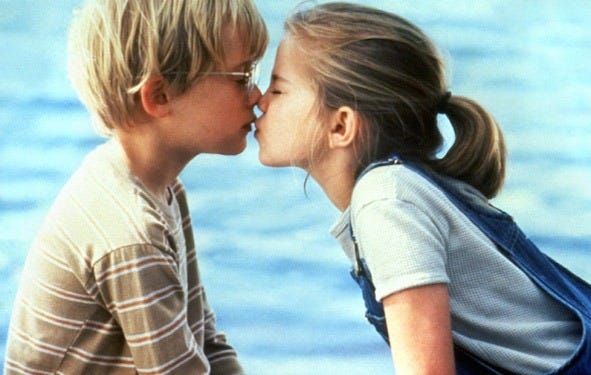
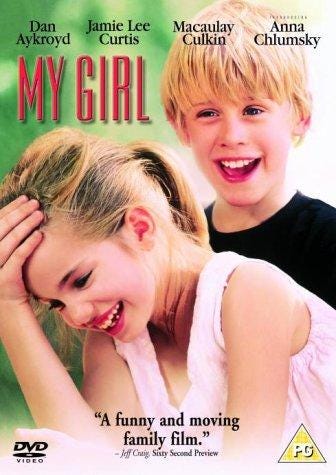
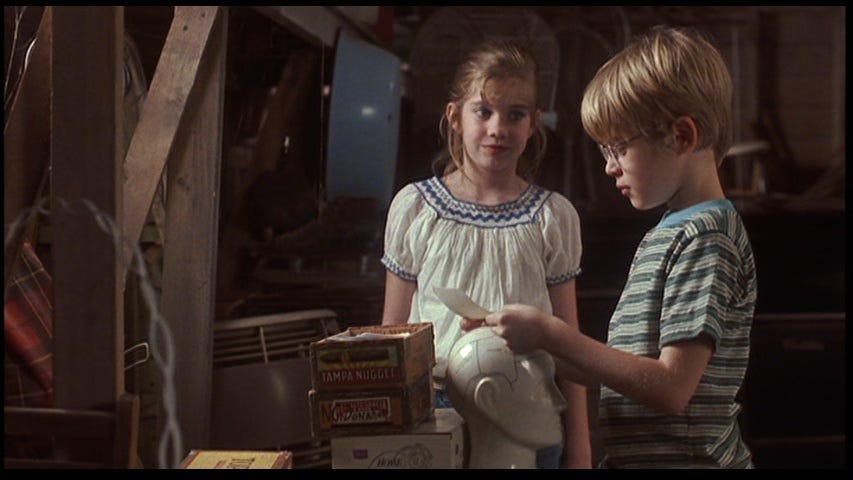
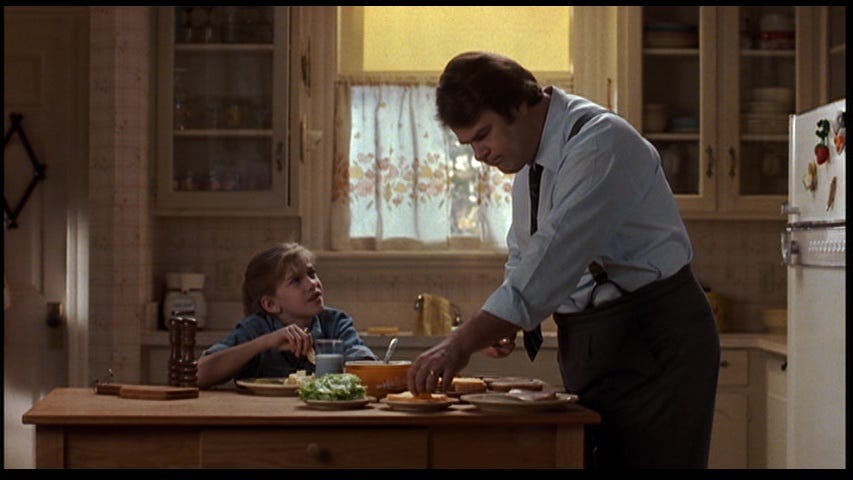
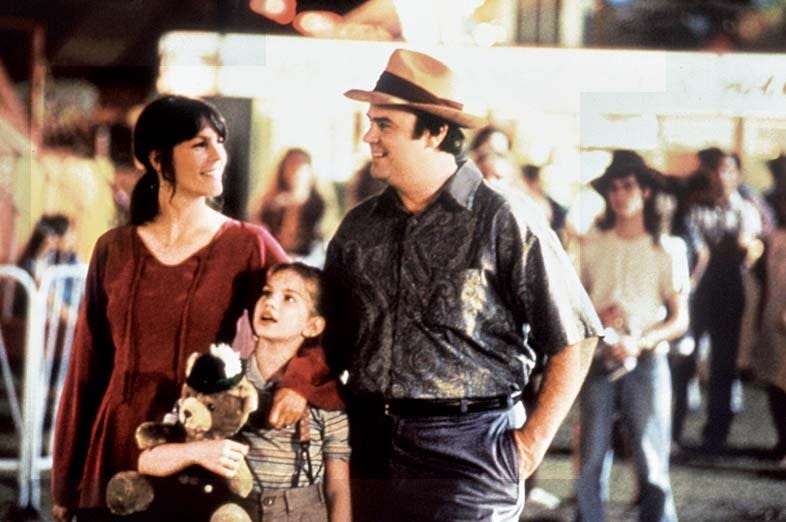
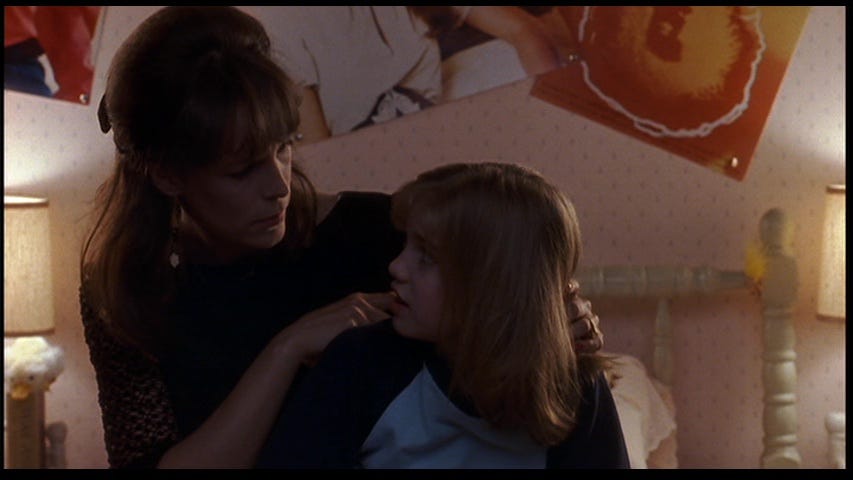
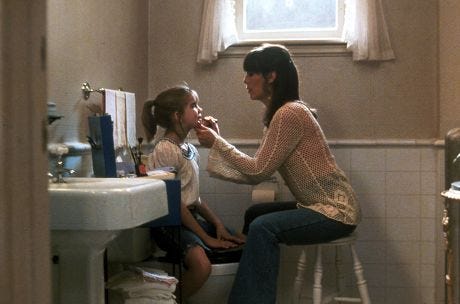


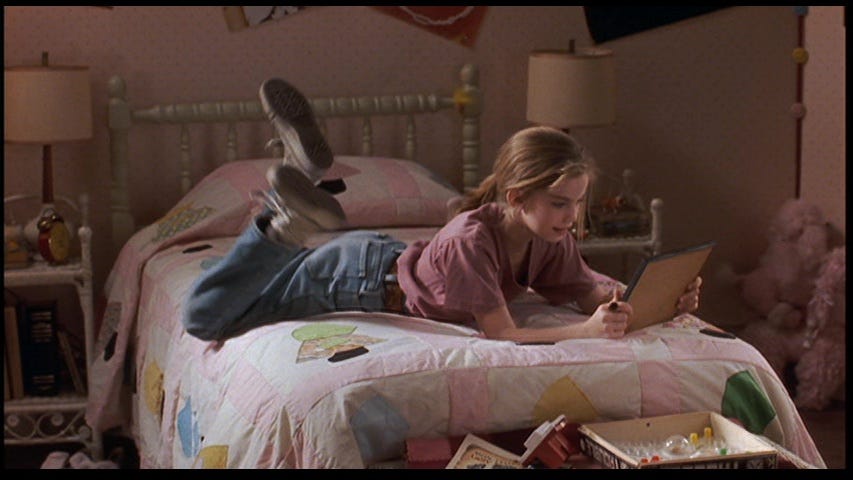
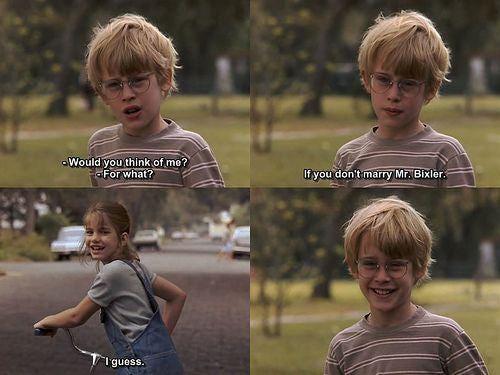
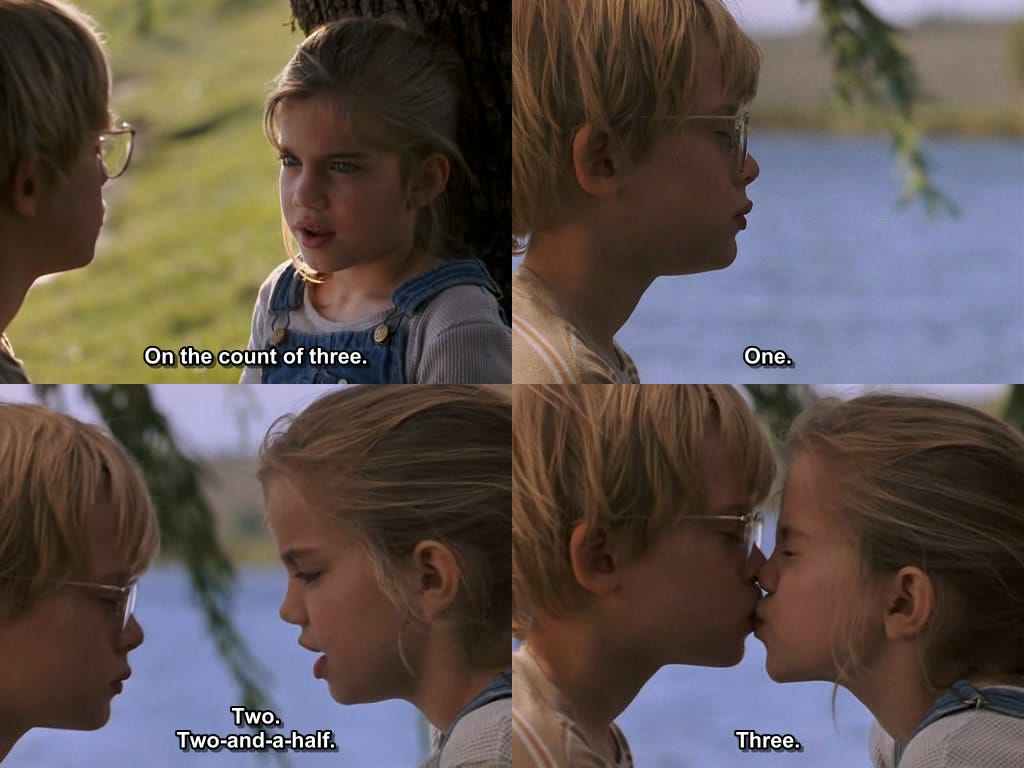
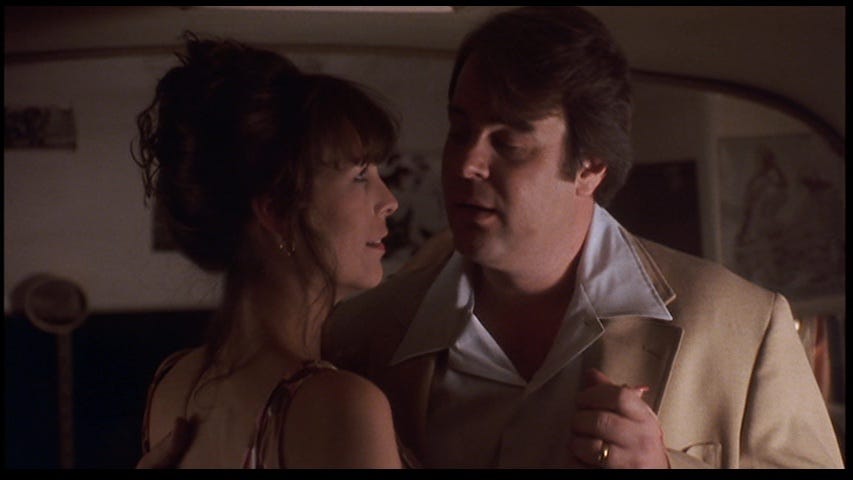

![My Girl” [1991]: Vada talks about how her mood ring doesn't work because it's always black, but when she looks at it after Thomas's death it is blue. This continuity error is My Girl” [1991]: Vada talks about how her mood ring doesn't work because it's always black, but when she looks at it after Thomas's death it is blue. This continuity error is](https://substackcdn.com/image/fetch/$s_!UMQ6!,w_1456,c_limit,f_auto,q_auto:good,fl_progressive:steep/https%3A%2F%2Fsubstack-post-media.s3.amazonaws.com%2Fpublic%2Fimages%2F14e1f1cf-bced-4d1e-988e-417d4001a771_564x423.jpeg)
Now I need to rewatch. This was a brilliant break down. Thank you!